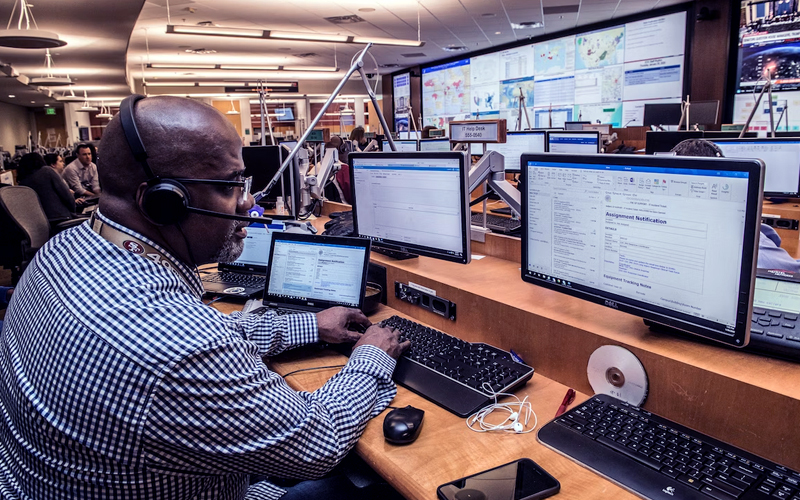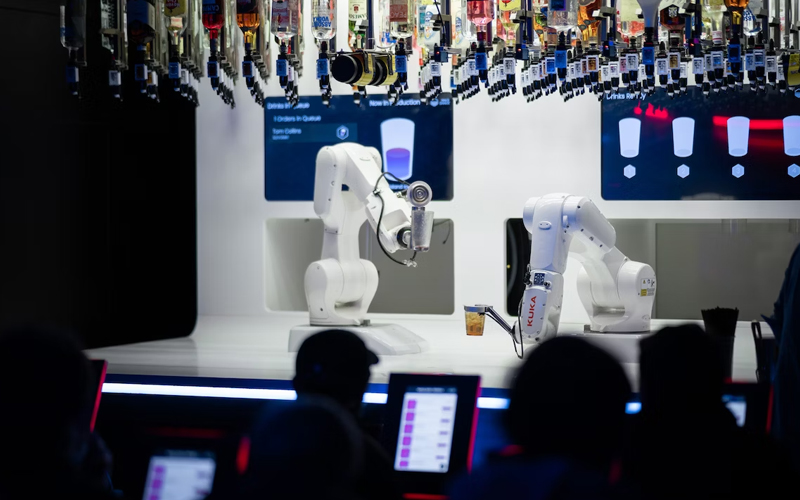As we discussed in the previous article, the 24×7 event management process in a technology-intensive company is critical. The way in which this challenge is being addressed is through the creation of an operations center. In this article, we will discuss two different approaches that can be taken to the operations center: human and automated. We will discuss the advantages and disadvantages of each approach and help you determine which is the best option for your company.
24×7 human operations center

Advantages
- Experience and expertise: Human specialists have the ability to apply their experience and expertise to classify each alert, helping to rule out false positives or up-prioritize critical incidents.
- Communication: Specialists can communicate effectively with other team members, deliver more contextual information and even collaborate on problem solving.
- Adaptability: Human teams can adapt quickly to unforeseen changes or emerging situations, making important decisions for the organization.
Disadvantages
- Costs: Implementing a human operations center requires high levels of investment. To have 1 position working 24×7, it is required to hire at least 5 people in rotating shifts (changes according to the labor laws of each country).
- Human errors: They can occur due to exhaustion, sleep, omission or even poor decision making due to lack of a single criterion defined by the organization.
- Queuing: Staff capacity is not infinite, therefore, in complex, high load cases, queuing and delays in event management can occur.
24×7 automatic operations center

Advantages
- Efficiency: Automated systems can process large amounts of data in real time, eliminating the possibility of queuing and reducing the time between detection and notification (MTTA) to 0.
- Standardization: Drives the organization to unify criteria and have well defined processes. Continuous improvement on the quality of the alarms is generated and the whole organization receives the same information in quality and form.
- Cost reduction: An automatic operations center allows to have a flexible cost structure, at least 50% cheaper than a human team, where it is required to hire from the beginning at least 5 people.
Disadvantages
- Lack of adaptability: Automatic systems are more rigid, being unable to adapt to unforeseen situations or changes in the environment.
- Lack of communication: Automated systems may not communicate effectively with stakeholders, which can make problem solving difficult in complex cases where more information is required.
- False positives: If the organization has a lot of false positives, it would be unnecessarily calling on duty personnel. In order to implement a system
How to choose the right operations center for your company?
When choosing between a human and automated 24×7 operations center, it is important to consider your company’s specific needs and objectives. Here are some key questions to ask yourself to make an informed decision:
- What is the volume of events and data your company needs to process on a daily basis?
- Will the event management team take on a level 1 support role?
- How critical is it for your company to maintain high uptime and low MTTR?
Depending on the answers, our recommendation would be as follows:
- Low volume of events? –> The high investment of having a team is not justified. Recommendation: Automatic operations center.
- Volume of moderate events and of the same type? –> Human Operations Center, allows to have trained personnel solving incidents 24×7 instead of having to refer to a specialist who is resting.
- High volume of events of different types? –> Automatic Operations Center, has higher accuracy at a lower cost. In this case, the advantage of being able to resolve incidents directly cannot be exploited, since many events will not be in your area of expertise. In addition, by attempting to resolve the incident, you run the risk of not paying attention to the next events that come in and that they will be missed.
- Very high volume of events of different types? Hybrid operations center (human + automatic). It is recommended to leave the human team to do 24×7 analysis/monitoring of alerts and automate notifications with their escalations. The human team, rather than managing directly, shifts its role to supervising and ensuring that the operation with its event management process runs smoothly.

Conclusion
The choice between a human and an automated 24×7 operations center will depend on your company’s specific needs and objectives. Both approaches have advantages and disadvantages, and it is crucial to evaluate your company’s needs before making a decision. Ultimately, the best option will be the one that provides the greatest efficiency, security and continuity for your company’s IT operations, while staying within budget and expectations.
Are you interested in implementing an automated operations center? Try 24Cevent, where you can implement automated 24×7 event management. Integrate all your alerts, classify them and generate real-time notifications to your team of specialists.
Not only that, you can automatically follow up on incidents, generating escalations in case the incident has not been resolved in the expected time.
And best of all, you can try all these features for free with our 24Cevent trial. Don’t wait any longer to notify and track your alarms automatically with 24Cevent! Sign up for our free trial today and discover how with 24Cevent you can have your own automated operations center.

